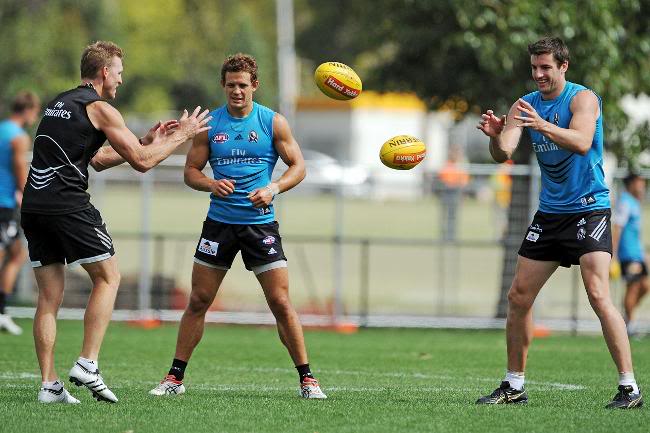Drills practice is the fundamental core of all skill training. Each sport has its own set of drills for developing the skills required. Drills essentially provide the frequent repetition of a skill that is required for the athlete to progress through the stages of skill acquisition towards autonomous skill mastery.
Key aspects of drills practice include: frequent repetition of the skill, fast and effective feedback, and adjustment of skill execution. Drills can be completed as part of a team or in 1-on-1 training sessions. The choice of drill should suit the individual athlete in relation to their stage of still acquisition and their sport. There should be a variety of drills used in the training session and across the training program to ensure the athlete does not get bored, and learn to use the skill in a variety of contexts (when appropriate).
In team sports, drills are often done as part of a whole team training session. During these larger team sessions usually follow the following patter:
- Session outline
- warm-up
- conditioning
- skills/drills
- modified game
- full game/tactical application
- cool-down
- session review
These types of training sessions often go for long periods of time and are often not specific to individual athletes.
Within training sessions drills practice can be massed, distributed, part or whole as a practice method. The practice method chosen should suit the athlete, skill and sport. Generally skills are best learnt with short frequent drill sessions. That is, 30-45 minutes of practice 3-5 days a week, rather than 2-3 hours 1-2 days a week.

